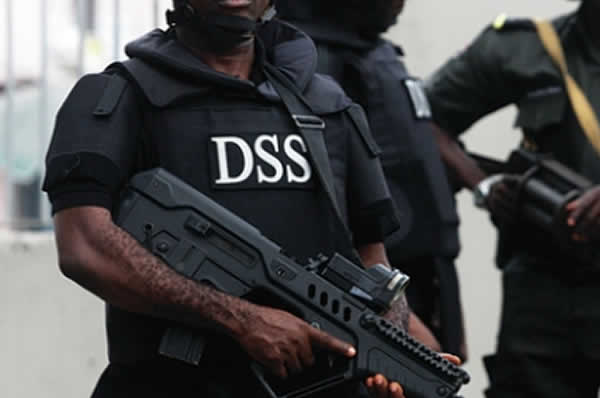Security
Terrorism : DSS mobilises for major action in North as directors brainstorm in Kaduna

In a renewed effort to curb terrorism and banditry in the North, Directors of the Department of State Services (DSS) from the North-West have convened in Kaduna to assess security threats and develop coordinated strategies to strengthen regional intelligence operations.
The strategic conference, which also included representatives from the Federal Capital Territory (FCT), Niger, and Plateau states, aimed to enhance intelligence sharing and joint response mechanisms across state lines.
Declaring the meeting open, Kaduna State Governor, Senator Uba Sani, represented by the Commissioner for Internal Security and Home Affairs, Sule Shuaibu (SAN), underscored that collaboration anchored on intelligence remains the most reliable means of dismantling security threats within and beyond the North-West.
He described the DSS as “the invisible backbone of Nigeria’s internal stability,” commending the service for its crucial role in safeguarding democracy and pre-empting potential threats across the country.“This conference offers an opportunity for reflection, coordination, and strategic renewal,” he said.
READ ALSO: DSS fires 115 personnel
Governor Sani noted that Kaduna has long prioritised intelligence-led security efforts through strong partnerships with the DSS and other agencies to prevent crimes ranging from extremism and sabotage to misinformation.
He stressed the need for enhanced analytical capacity, inter-agency trust, and investment in technology-driven intelligence, adding that modern security management requires more than conventional surveillance methods.
The governor also called for non-kinetic approaches to peacebuilding such as community dialogue, preventive diplomacy, and counter-narratives. “Peace must be pursued through justice, development, and inclusion,” he added.
The Emir of Zazzau, Ambassador Ahmed Nuhu Bamalli, who was present at the conference, commended the DSS for working closely with traditional institutions to address grassroots security concerns.
He revealed that, with DSS support, the Zazzau Emirate had used alternative dispute resolution methods to ease court congestion by more than 2,000 cases in two years. The Emir further praised the agency’s vetting of district and village heads, which, according to him, has helped identify and remove unfit traditional officials. “It’s better to get rid of them from the beginning than allow them to exploit their people,” he said.
Speaking on behalf of the military, the General Officer Commanding 1 Division of the Nigerian Army, Major General Mohammed Wase—represented by Brigadier General Mohammed Kana—stated that the Army’s successes against bandits and terrorists were largely due to timely and actionable intelligence provided by the DSS.
Earlier, Kaduna State Director of the DSS, Hakeem Abiola, explained that the meeting was designed to assess operational challenges and strengthen coordination among security units in the North-West zone.
Abiola highlighted several successful kinetic and non-kinetic operations executed under the leadership of the DSS Director-General, Mr. Oluwatosin Adeola Ajayi, including community peace initiatives aimed at “winning the hearts and minds” of citizens.
He said collaboration with traditional rulers, religious bodies, and civil society has been key to maintaining stability in Kaduna. “Through regular engagements with JNI, CAN, and community leaders, we’ve been able to resolve sensitive disputes before they escalate,” he said.
According to him, the Kaduna Peace Model—a community-based initiative institutionalised by the state government—has been instrumental in reducing kidnapping and banditry along the Kaduna–Abuja, Kaduna–Kachia, and Birnin Gwari highways.
Abiola further disclosed that the service, in partnership with other agencies, had intercepted arms shipments, rescued kidnap victims, and foiled terror plots across the region over the past year.
He called for the establishment of a regional security forum comprising security chiefs, traditional rulers, and political leaders to tackle cross-border crimes. “As threats evolve, our capacity and tools must evolve too,” he concluded.






















